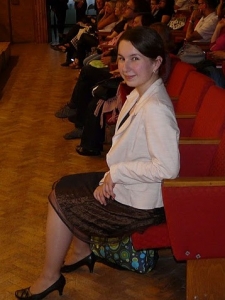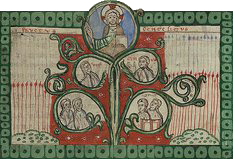Inter-cultural Transmission of Intellectual Traditions in the Middle Ages and the Early Modern Period. A comparative perspective
Participants
Barbara Grondkowska

In the 16th century, the Church Fathers were at the centre of attention of both Catholics and Protestants. The patristics was the primary point of reference and it belonged to the cultural code, common for all educated people. In the epoch of fierce confessional disputes, it was a polemical tool. Therefore, auctoritas patrum became the strong argument not only for post-Tridentine Church, but also for the Protestants. In my contribution to the project I am going to investigate what the reception of the Church Fathers was in the 16th century. I focus on the sermon genre due to its popularizing character and the wide circle of audience. As a consequence, I can trace two paths of transmission: diachronic (vertical) and synchronic (horizontal). The former concerns the time and answers the question how the ancient ideas functioned in the Renaissance culture. The latter exists in the context of early modern literacy and is connected with the distribution of the same ideas in different languages and literary genres. As a illustration of these processes, I am going to analyze the case of the Polish Jesuit Jakub Wujek and his two collections of sermons: Postylla katoliczna (Catholic Postil) and Postylla mniejsza (Lesser postil).
Barbara Grondkowska is a graduate of the John Paul II Catholic University of Lublin (MA in Polish philology, 2008, and MA in philosophy, 2009). Presently, she is a PhD student at the Faculty of Philosophy at the same university. Her PhD thesis concerns with medieval sermons and their philosophical contents. She focuses on “Sermones” by Nicholas of Cusa, that are investigated both in a philological (the rhetorical organization of the text, the choice of a language and a style) and philosophical (ontological, epistemological and ethical) context.



